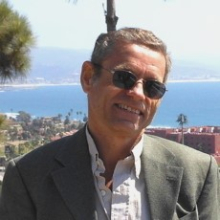CBE 298 Seminar: The Route To Better Catalysts: From Surface Science To Nanotechnology

Distinguished Professor
Department of Chemistry
University of California, Riverside
Abstract: One of the major challenges in heterogeneous catalysis is the preparation of highly selective and robust catalysts. The goal is to be able to synthesize solids with stable surfaces containing a large number of specific surface sites designed for the promotion of a particular reaction. New synergies between surface-science studies and novel nanosynthesis methodology promise to afford new ways to design such highly selective catalysts in a controlled way. In this presentation I will provide a progress report on a few of projects ongoing in our laboratory based on this approach. Platinum-based catalysts have been prepared for the selective trans-to-cis conversion of olefins, with a design based on early surface-science work with model surfaces and quantum mechanical calculations that indicated a particular preference for (111) facets in promoting the formation of the cis isomers. This research has been extended by using the concept of "single-site alloy catalysis" with Pt-Cu bimetallics for the selective hydrogenation of unsaturated aldehydes. In a third example, novel mixed-oxide surfaces are being designed using atomic layer deposition (ALD) to create new redox and acid-base sites. In combination with added metal nanoparticles, these are being tested for the selective promotion of oxidation and hydrogenation reactions starting from organic feedstocks. Finally, new metal@TiO2 yolk-shell nanomaterials have been used to promote CO oxidation at cryogenic temperatures and to suggest that in photocatalysis the role of the metal may not be to scavenge the excited electrons produced in the semiconductor upon absorption of light, as commonly believed, but rather to promote the recombination of the adsorbed atomic hydrogen initially produced by reduction of H+ on the surface of that semiconductor.
Bio: Francisco Zaera received his licenciate and Ph.D. degrees from the Simón Bolívar University in Caracas, Venezuela (1979), and the University of California, Berkeley (1984), respectively. He was an assistant chemist at the National Synchrotron Light Source of Brookhaven National Laboratory from 1984 until 1986 before joining the University of California, Riverside, where he is presently the Hartland H. Schmidt Founder’s chair in chemistry, the director of the UCR Center for Catalysis and the UCR ACIF assistant director for XPS. Zaera has authored over 450 articles in scientific publications and has received several national awards, including the American Chemical Society George A. Olah and Arthur W. Adamson Awards, the North American Catalysis Society Paul H. Emmett Award, a Humboldt Research Award for Senior Scientists, the Inaugural ACS CATL Exceptional Achievements in Catalysis Award, the UCR Faculty Research Lecturer, and the American Vacuum Society Medard W. Welch Award. He is a Fellow of the American Chemical Society, the American Vacuum Society and the American Association for the Advancement of Science. His research interests are in surface and materials chemistry and in heterogeneous catalysis. More information about Prof. Zaera can be found at https://zaeralab.ucr.edu.
Share
Upcoming Events
-
MSE 298 Seminar: Mechano-Electrochemical Phenomena at Ceramic Electrolyte Interfaces
-
CBE 298 Seminar: Beyond the Tailpipe - From the Science of Soot Formation to the Engineering of Carbon Nanomaterials
-
MSE 298 Seminar: Innovation In Materials Science - An Industrial R&D Perspective
-
MSE 298 Seminar: Understanding the Impact of Grain Boundary Inclination on Grain Growth Using Modeling and Simulation and Experiments
-
EECS Seminar: Mixed Conductors for Bioelectronics
